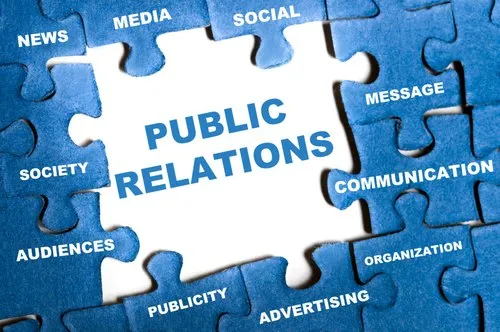
The Ultimate Checklist for Launching Your PR Agency
Starting a public relations (PR) agency is a very exciting and lucrative business for those passionate about communication, strategy, and branding. But to run a successful PR agency, you need to be prepared, organized, and strategic in every step, from understanding the industry to managing clients and developing effective communication strategies. Here’s the ultimate checklist for launching your PR agency:.
1. Conduct Market Research
It is very important to know the landscape of the industry before entering the PR world. Do research on competitors, market trends, and niches you can target. Determine if you want to specialize in a specific industry, such as healthcare, technology, or entertainment, or serve a wide range of clients. Analyze your competitors’ strengths and weaknesses and identify gaps that your agency can fill.
2. Define Your Niche
While it is tempting to serve everyone, narrowing your focus can help you stand out in a competitive market. By defining a specific niche, you can create a tailored service offering that resonates with a particular group. It could be anything from tech startups to non-profit organizations or luxury brands. By specializing in one area, you can position your agency as an expert in that field, making it easier to attract clients.
3. Create a Business Plan
A well-thought-out business plan is essential for any new business. This document should outline your agency’s mission, vision, goals, and the services you’ll provide. Include details on your target market, pricing strategy, competitive analysis, marketing plan, and projected financials. A solid business plan will not only guide your decisions but also serve as a roadmap for future growth.
4. Register Your Business
One of the most important steps in opening a PR agency is forming a legal entity. This can be done by either selecting a sole proprietorship, partnership, or limited liability company (LLC), depending on the goals set. Register the business with the appropriate local authorities and obtain licenses or permits, if necessary. Also, open a business bank account to keep finances separate from personal accounts.
5. Develop Your Brand Identity
As a PR agency, your brand identity will play a major role in attracting clients. Develop a professional logo, choose a color palette, and design a website that reflects your agency’s ethos and expertise. Make sure your branding is consistent across all platforms, including your social media, business cards, and promotional materials. Your agency’s brand should exude professionalism and trustworthiness.
6. Develop a Service Offering
Define the specific services your PR agency will provide. Common PR services include media relations, crisis management, content creation, event planning, social media management, and influencer partnerships. Create packages or customizable options for clients based on their needs and budget. It’s also helpful to include a range of pricing tiers to appeal to clients with varying budgets.
7. Set Up Your Infrastructure
Building the right infrastructure will help streamline operations, including setting up accounting software, project management tools, and CRM systems for communication with the client. Additionally, the right team members are essential, so bring in experts to help in writing, media outreach, and strategy.
8. Create Relationships with Media Contacts
As a PR agency, cultivating strong relationships with journalists and media outlets is crucial for success. Start building a database of key media contacts in your niche. Keep these relationships nurtured through consistent communication, and always be responsive to media inquiries. The stronger your relationships with the press, the more opportunities you’ll have to place your clients’ stories in reputable outlets.
9. Develop a Marketing Plan
As you embark on establishing your PR agency, create a marketing strategy to spread the word about your services. You may use digital marketing (social media, SEO, email newsletters), networking events, and word-of-mouth referrals. Track all marketing campaigns so you can tell which methods yield the most leads and refine as needed.
10. Get Your First Clients
The first clients you sign are vital to your agency’s reputation and future success. In fact, since your audience pool is limited at first, start by leveraging your existing network and reaching out to potential clients who might benefit from your services. Be prepared to pitch your agency’s offerings and show them how you can help them reach their PR goals. Building strong case studies and testimonials from these initial clients will also serve as powerful tools to attract more business.
11. Deliver Results and Scale Your Business
Once the clients are captured, the focus should be on bringing in exceptional results. PR strategies all work hand in hand with media placements, proper client communication, and relationships that will ensure repeat business. As the business continues to scale, one may think of expanding the team, additional services, or other agencies to interact with further enhance the growth of the business.
Launching a successful PR agency requires careful planning, an understanding of the industry, and a commitment to delivering results. With this checklist in hand, you’ll be on the right track to building a reputable PR agency that attracts clients, builds strong media relationships, and thrives in a competitive market. Focus on your unique strengths, build a strong foundation, and continuously adapt to industry changes to ensure long-term success.

